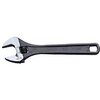I’ve finally sold off my harleys and bought me a real motorcycle but I wanna upgrade it with LED all over. How do I change my bulbs for rear turn signals? All the other lightning was easy and even swap relay for turn signals was easy. But those rear turn signals beats me.
Would be so happy if someone could guide me!
Would be so happy if someone could guide me!


